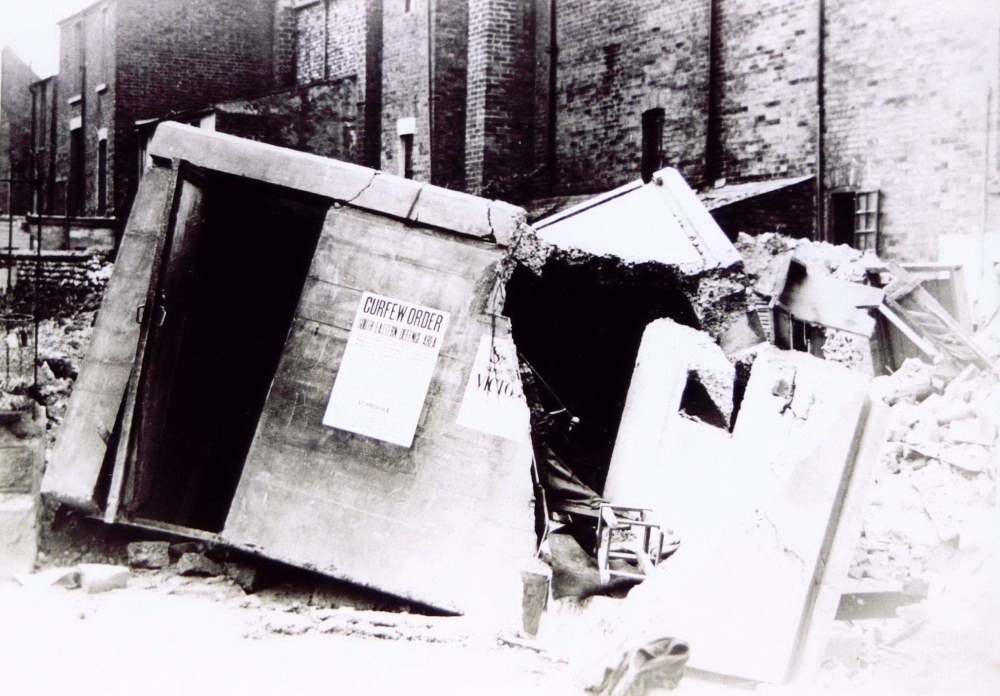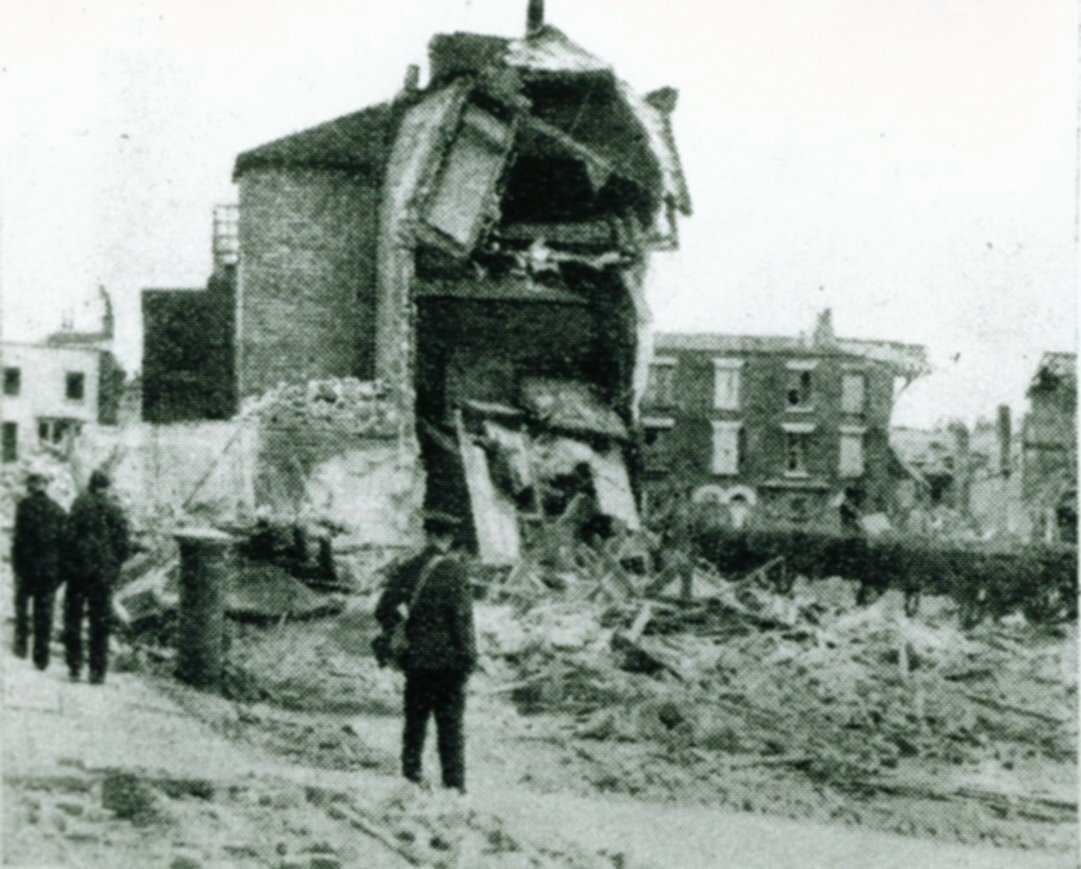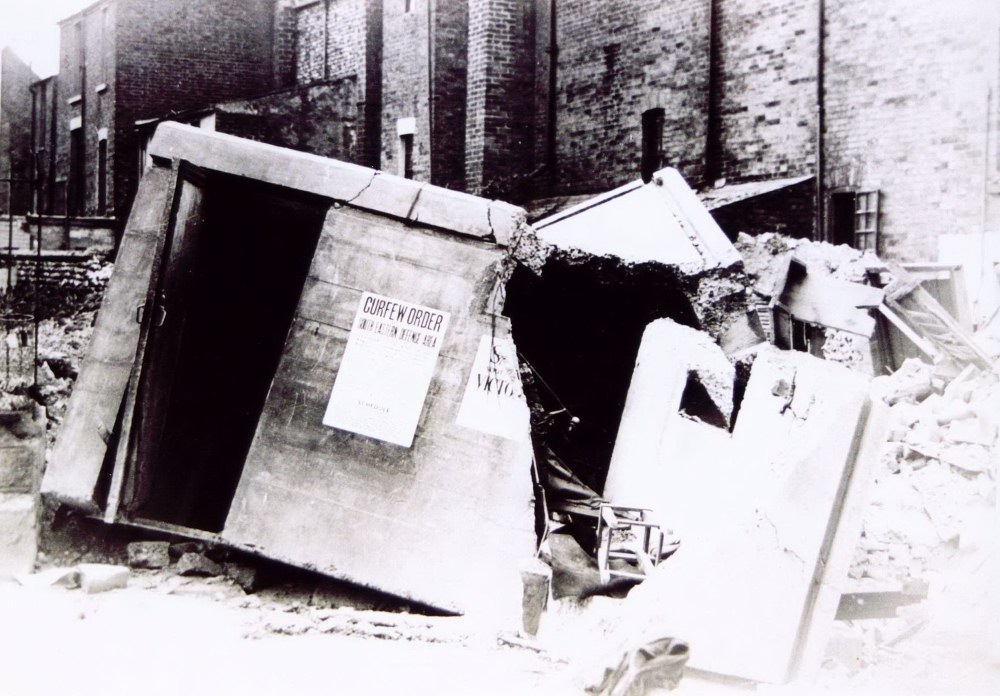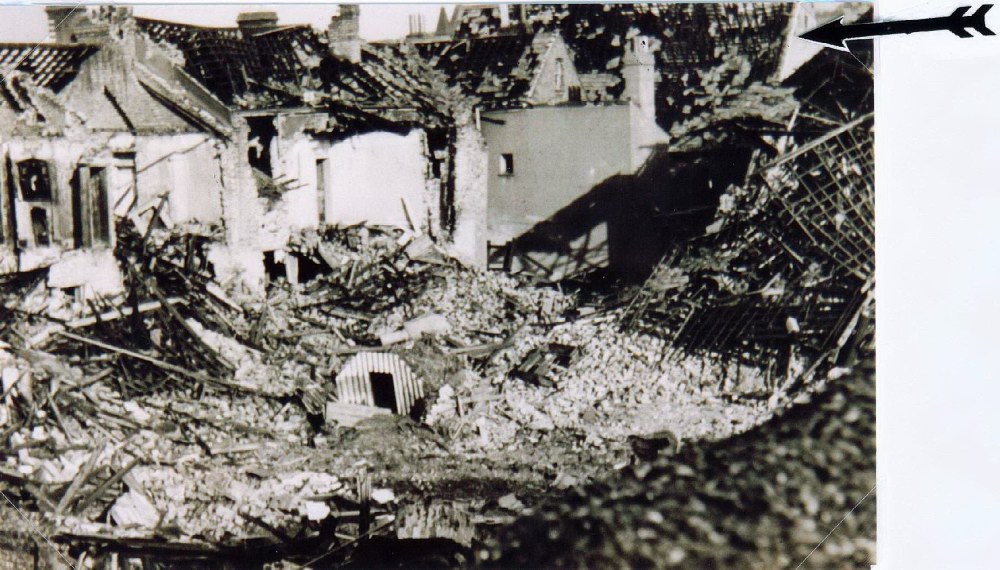bomb damage to Ramsgate | Click here to buy the book or look at our other publications about Ramsgate and the surrounding area
bomb damage to Ramsgate
bomb damage to Ramsgate
This is a bit of the text from the book and a few of the pictures from the book showing the bomb damage to Ramsgate
SATURDAY. 24, AUGUST 1940.
Ramsgate's great air raid of Saturday, 24, August 1940 is now a matter of history, and it is possible to regard it in fair perspective. Although there was a great deal of damage, and many casualties, fatal and otherwise, we can say without fear of being accused of distorting the effects, that the town has emerged triumphant.
The attitude of the people is well summarised by a remark made to us by a burly housewife "I've lost my home," she said, " And I nearly lost my life, but after all, there is a war on and I suppose we must expect such things to happen. But, if Mr. Blooming Hitler thinks he can put the wind up us by bombing women and kids-well, he's got another think coming, that's all". And so it is all over the town. While commiserating with the bereaved and the injured, Ramsgatonians have accepted the position with cheery philosophy. The only real irritation they feel is that Hitler (they insist on blaming him personally) has been responsible for depriving them of gas with which to cook their dinners or boil a kettle for tea. But even this difficulty has been overcome by good will and neighbourliness. Oil stoves, many of them true veterans, have come into their own again, and there are many instances in which groups of friends have banded together to cook communal meals. Ever and again the Britisher's unquenchable sense of humour has sparkled Gazing at a street literally paved with glass, an onlooker exclaimed, "Blimey What a bad day for window cleaners". Ramsgate has passed through its ordeal by bomb and flame, but it's spirit is unbroken, and the town still carries on.
We have tried below to present a plain unvarnished description of the damage done, and to recount some of the incidents which have occurred. When the fatal raid took place, one of our representatives was standing in the vicinity of Albion House, watching the deadly anti-aircraft gunfire, and says it appeared that the German formation was broken up at least twice before it could get far beyond the coastline. Then reforming at sea, it came on again, obviously bent on mischief. The shrapnel was so thick that he and a colleague from another news-paper retreated to the door-way of Albion House in order to avoid falling fragments. Suddenly, the air seemed to be full of screaming objects. He saw one fall on the harbour, and then, yelling to his companion to run for safety, he bolted down the corridor of the building to try and reach the reinforced cellar in the basement. He had only taken a few paces down the passage when there was a deafening explosion. "I felt a hot blast on my neck" he says "and it seemed as though I had been hit in the back by a warm feather bed, I was sent spinning down the corridor. I saw my colleague on ahead of me. He crashed into a doorpost and was flung headlong down the stairs into the basement. It was only his steel helmet which saved him from serious injury. As it was his hands were cut by glass splinters, fortunately, I escaped injury.
The cellar shelter was crowded with people of both sexes, mostly members of departments, but among them were several passers-by, who had prudently taken cover. Lights had failed, and it was in pitch darkness that they listened to the pandemonium outside. It seemed as though all the fiends in hell had broken loose. Bombs came down like rain and the whole fabric of the building rocked. Mingled with the terrific detonations of the bombs was the barking roar of the anti-aircraft guns the crash of falling masonry and splintering glass and the sharp rattle of machine-gun fire. In spite of it all, there was no sign of panic, although an extra loud detonation brought an occasional muffled scream from some of the ladies. Lights were soon obtained, then everyone was more comfortable, and there was something in the nature of a roll-call. It was known that the Mayor (Alderman A.B.C.Kempe) had been among those in Albion House who had made for the shelter when danger was imminent, but he could not be found. A search party was hurriedly assembled, and during a lull in the firing, they made investigations.



